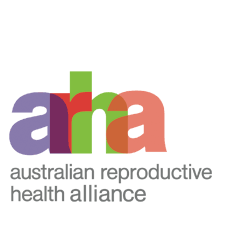- Availability of Viagra for military personnel since 1998
- Criteria for prescribing Viagra to military personnel
- Treatment options for erectile dysfunction in the military, including PDE5 inhibitors
- Role of the DoD Pharmacy and Therapeutics Committee in regulating access
- Annual spending on erectile dysfunction medication by the US military
- Statistics on active-duty personnel, PTSD, and erectile dysfunction
- President Trump's stance on military spending on Viagra
- The unrelated issue of the ban on transgender military personnel
Availability of Viagra for military personnel since 1998
Viagra was made available to the troops in 1998, with each pill initially costing up to $10 a dose (the cost is now $25). It is prescribed for sexual impotence "only after a thorough evaluation" and limited to six per month.
Criteria for prescribing Viagra to military personnel
The military has limited Viagra to men in whom erectile dysfunction has been diagnosed by a doctor. Also, no one will be allowed more than six pills per month.
Treatment options for erectile dysfunction in the military, including PDE5 inhibitors
Military personnel with organic impotency can receive medically necessary care for erectile dysfunction, including PDE5 inhibitors, subject to limitations established by the DoD Pharmacy and Therapeutics Committee.
Role of the DoD Pharmacy and Therapeutics Committee in regulating access
The DoD Pharmacy and Therapeutics Committee oversees the regulation of access to Viagra and other erectile dysfunction medications for military personnel.
They ensure that proper evaluation is conducted, and limitations are enforced.
Annual spending on erectile dysfunction medication by the US military
The US military spends a significant amount of money on erectile dysfunction medication, with about $84 million spent annually. The military spends $41.6 million annually on Viagra alone, according to the Military Times analysis — roughly five times the estimated spending on transgender health care.
Statistics on active-duty personnel, PTSD, and erectile dysfunction
A study of active-duty personnel between 2004 and 2013 suggests that one should be cautious of reading too much into the links between America's recent wars, PTSD, and erectile dysfunction in relation to the military's massive spend on Viagra.
President Trump's stance on military spending on Viagra
In June 2019, President Trump admitted he didn't know about U.S. military spending on Viagra as he defended his ban on transgender military personnel.
The unrelated issue of the ban on transgender military personnel
President Donald Trump announced a ban on transgender people serving in the military, citing “medical costs” as the primary reason. However, this ban is not related to the use of Viagra by military personnel.
- purchase levitra in canada
- generic ed drugs online
- do you need a prescription to buy viagra in ontario?
- who can use viagra
- is there a super viagra?
- are there generic erectile dysfunction drugs?
- is viagra safe for 20 year olds?
- what enzymes affect viagra?
- does viagra have a sell by date?
- is 20 mg levitra equal to 100mg viagra?
- does gabapentin cause erectile dysfunction?
- is it safe to take gas station viagra?
- what is the most common cause of ed?
- alfuzosin and viagra
- does viagra thin your blood?
- does physical therapy work for erectile dysfunction?
- can cialis be taken with antibiotics?
- can viagra cause back pain and other unusual side effects?
- Erectile Dysfunction
16 AUGUST 2011: OUTCOME OF ARHA’S EXTRAORDINARY GENERAL MEETING
An Extraordinary General Meeting of the members of the Australian Reproductive Health Alliance (ARHA) was held on Monday August 15th 2011.
The meeting was convened to consider the resolution that, in view of the continuing financial insecurity facing the Alliance and the decision of the Parliamentary Group on Population and Development to transfer its Secretariat to another organisation, the Australian Reproductive Health Alliance cease on September 30th 2011.
The motion was passed unanimously and ARHA will cease to exist in any form after that date.
The decision to close an organisation which has achieved so much over the past 15 years was taken in sadness. The Management Committee of ARHA would like to thank all those members and supporters who have sustained us in so many ways over that time.
For more information please do not hesitate to contact Susan Stratigos, ARHA President, on +61 (0)2 6278 6948 or 0402 957 259.
Member of ACFID & Signatory to the ACFID Code of Conduct.
NGO Special Consultative Status with the Economic and Social Council of the United Nations

